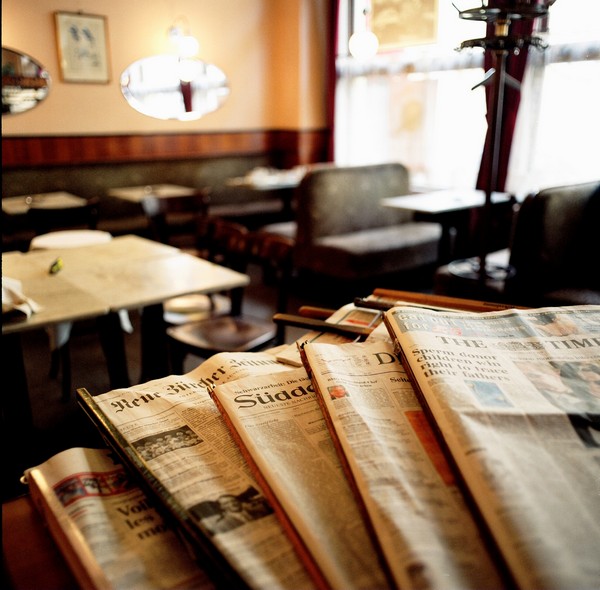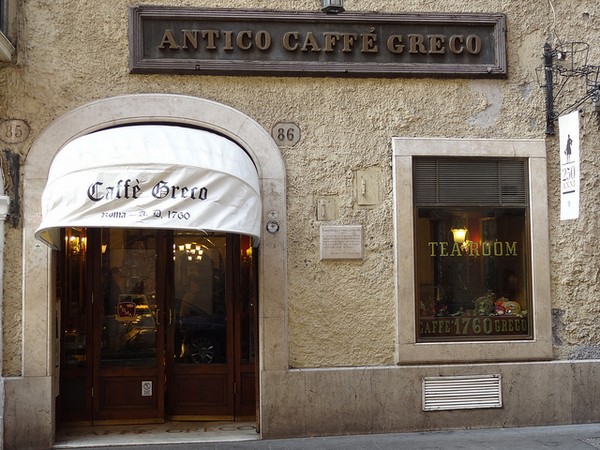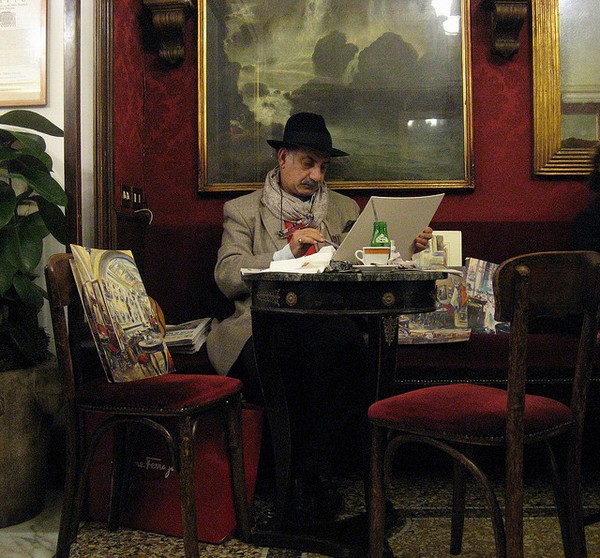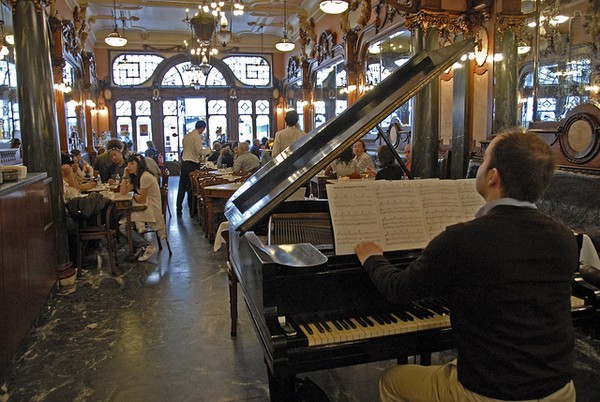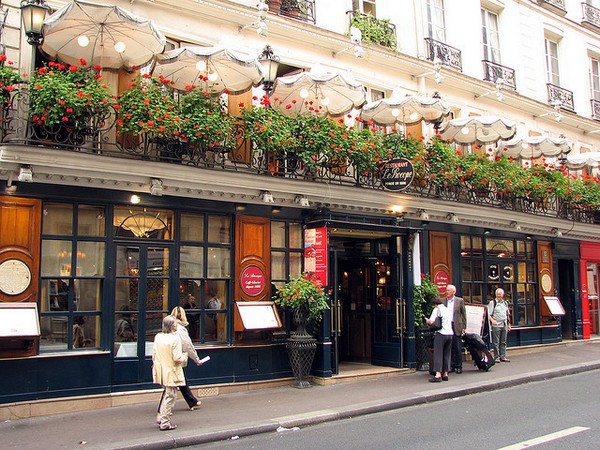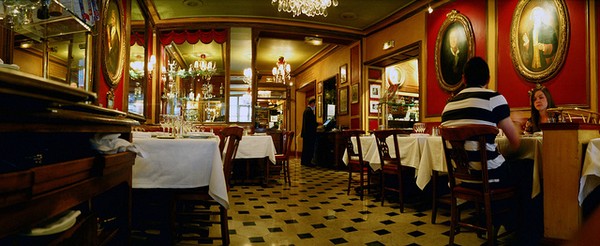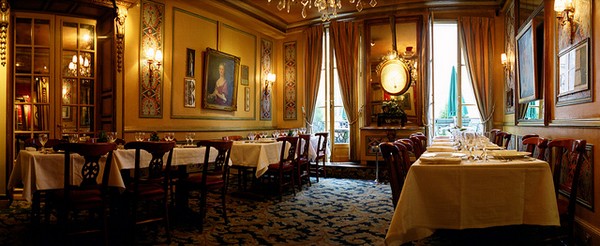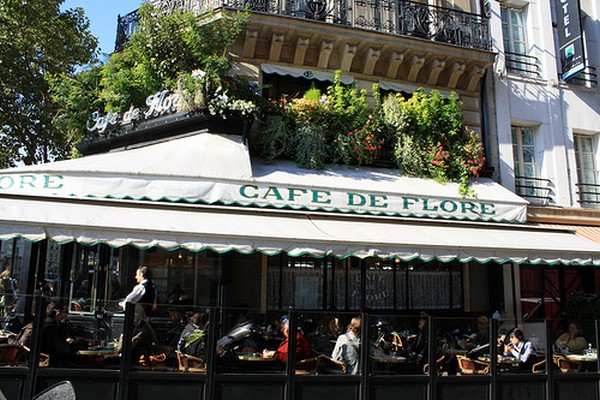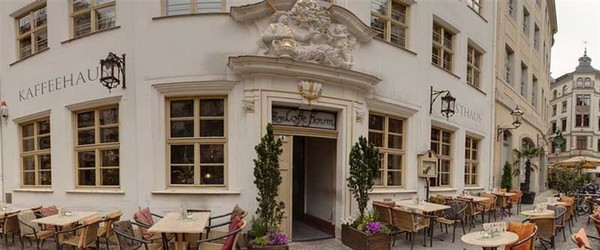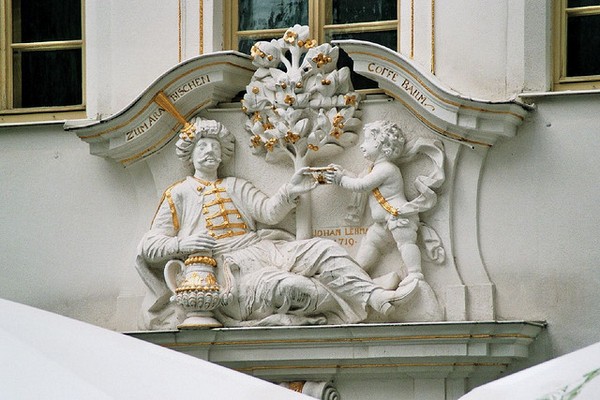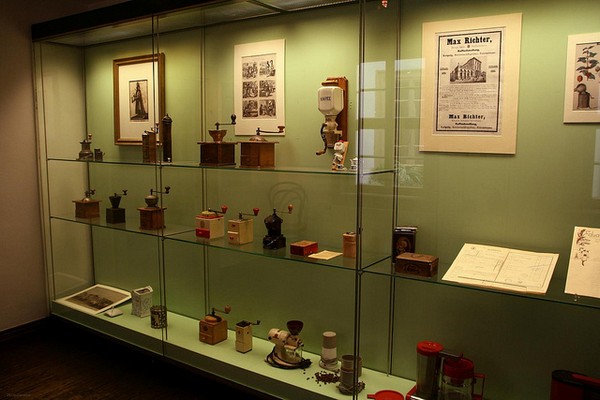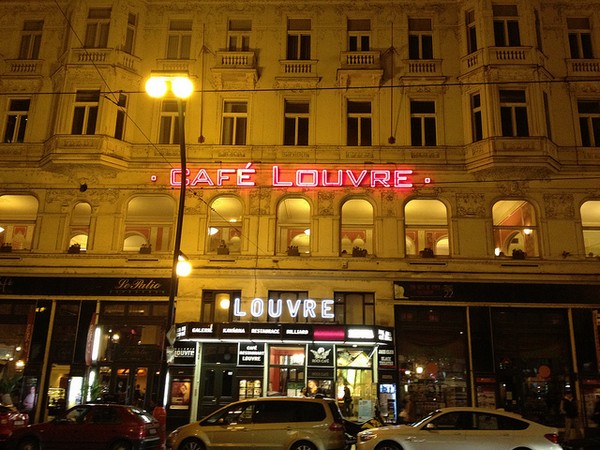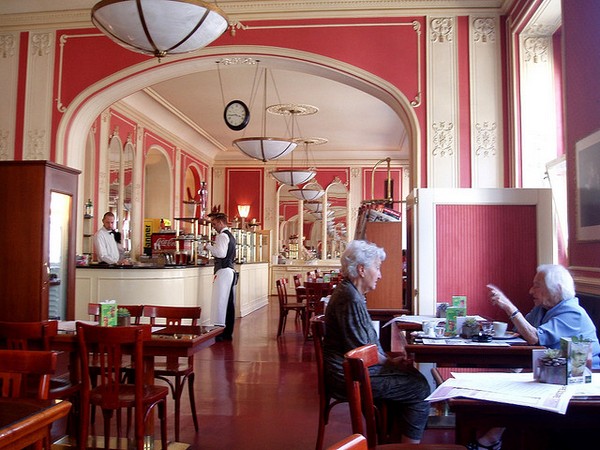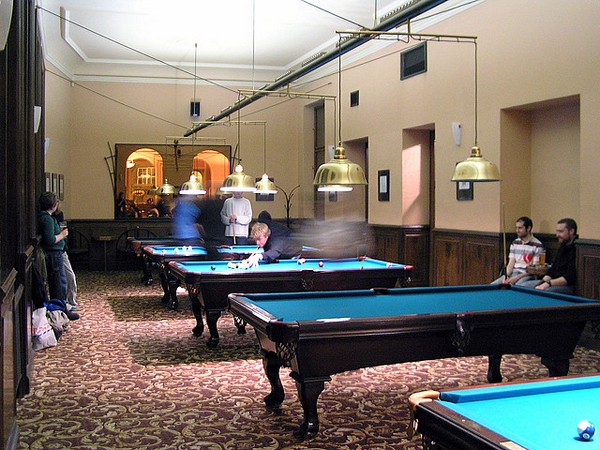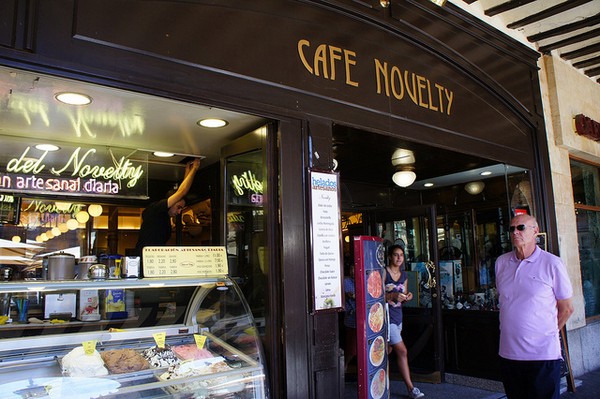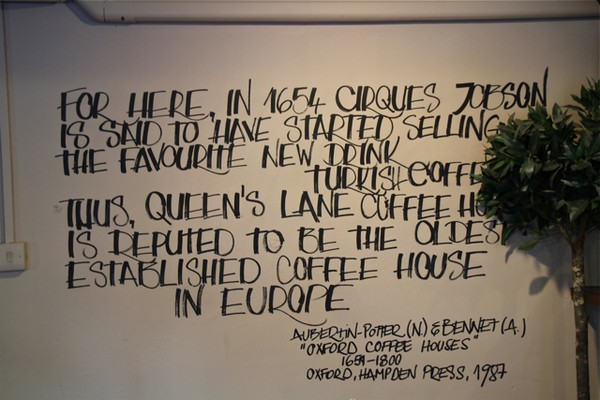“… it must be said that the Viennese coffeehouse is a particular institution which is not comparable to any other in the world. As a matter of fact, it is a democratic club to which admission costs the small price of a cup of coffee.
Upon payment of this mite every guest can sit for hours on end, discuss, write, play cards, receive his mail, and, above all, can go through an unlimited number of newspapers and magazines.” Stefan ZWEIG, The World of Yesterday
Bohemian spirits, gather! Here are eleven of the most culturally-charged coffee houses in Europe, where one can imagine time standing still. From Mozart’s favorite place of refuge to the gathering places of Lord Byron, Goethe and Charles Dickens, this post is meant to take you back to meaningful discussions, coffee rituals and literary nonconformism. Without further ado…
#1.Café Bräunerhof, Vienna
Café Bräunerhof is a classic Viennese café and restaurant, located at Stallburggasse 2 in the First District, near the Habsburg city palace. Its name is most often correlated with Thomas Bernhard, a famous Austrian novelist and poetry writer, who used to visit the coffee house. Bräunerhof is also known for its impressive collection of old newspapers- some say the largest in all Vienna. Young writers, as well as established personalities in the field of literature love to spend their time here, making Bräunerhof… bohemian. According to a Telegraph review, best time to visit the café during the day is 3 pm, right after launch. Prices: moderate (5 Euros per coffee on average).
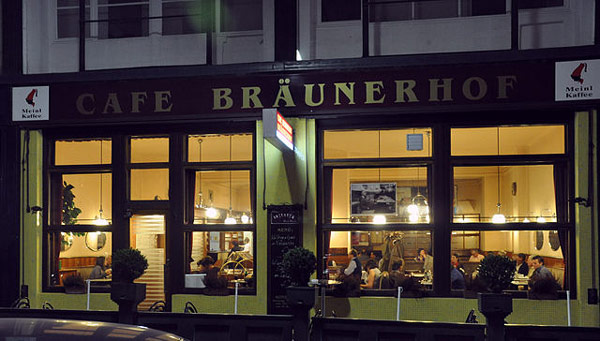
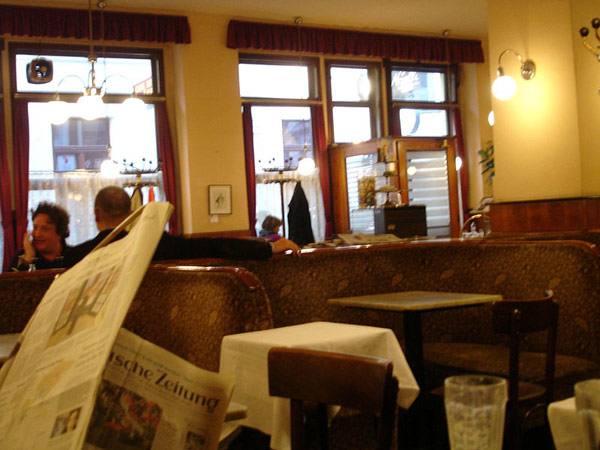
#2. Café Frauenhuber, Vienna
Café Frauenhuber is known as Mozart’s favorite place of refuge and also as the oldest Viennese coffeehouse. According to the official website of the café, Mozart´s last public performance took place here on March 4th, 1791. Located on Himmelpfortgasse 6, the place offers a large array of coffee types and the opportunity to enjoy a typical Austrian breakfast. Coffee prices range from 2.60 to 6.50 Euros.
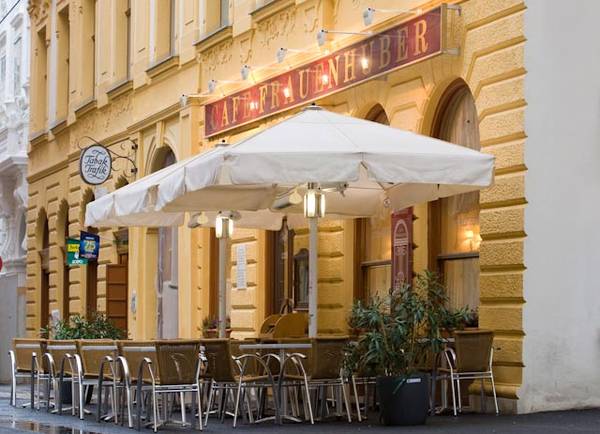
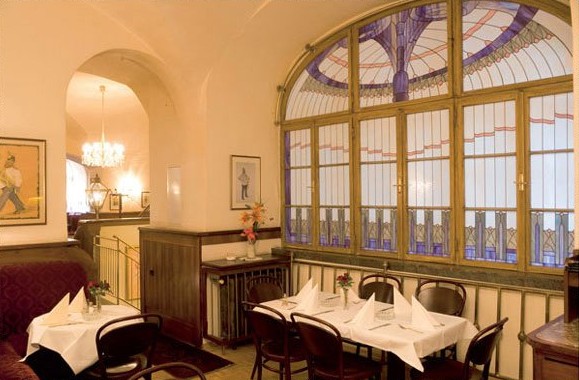
#3. Caffè Florian, Venice
29 December 1720 is a memorable day for coffee lovers in Italy. This was the first day when the oldest Café in Italy opened its doors in Piazza San Marco, Venice. First known as the Café of the Triumphant Venice, the name has changed over time, in order to honour the memory of the original owner, Floriano Francesconi. This way it was later known as Caffè Florian.
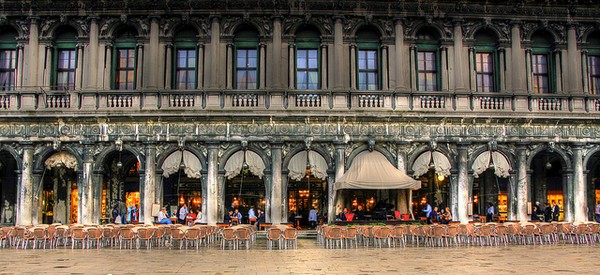
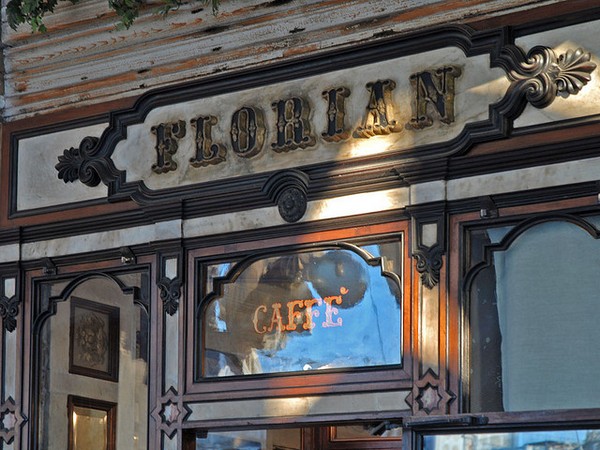 Outstanding personalities have made a habit of appearing quite often in this marvelous place of cultural refuge.
Outstanding personalities have made a habit of appearing quite often in this marvelous place of cultural refuge.
Since it was the only café that allowed the presence of women at that time, Casanova could not miss the scenery, or so they say. Other frequent visitors were: Lord Byron, Goethe, Charles Dickens, Marcel Proust, Rousseau and Modigliani. 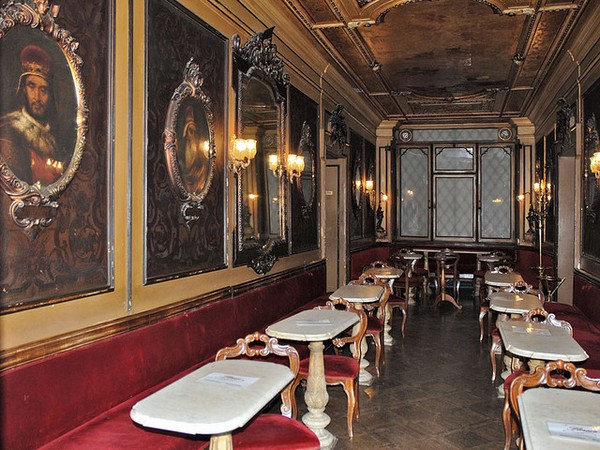
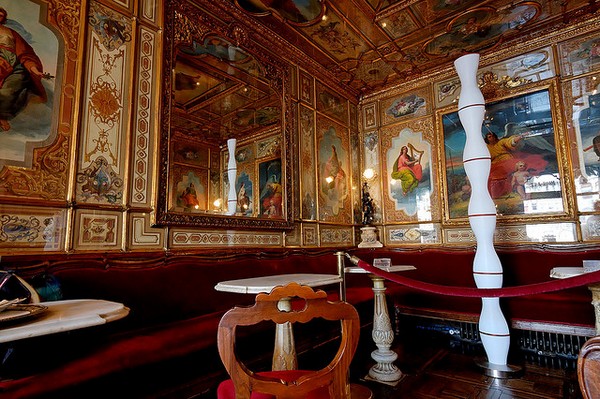
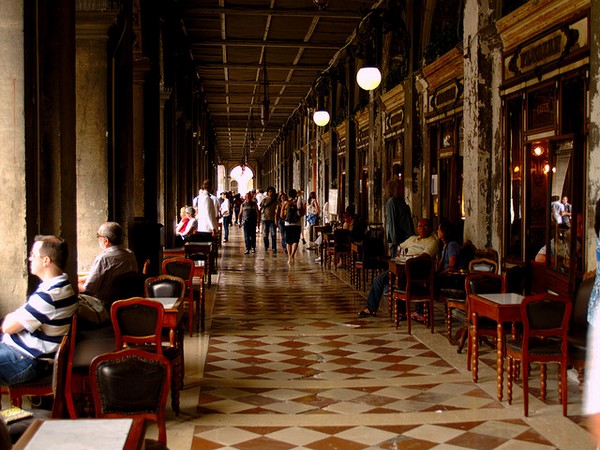
#4. Caffè Greco, Rome
Caffè Greco is the second oldest caffè in Italy, after Caffè Florian. First known as Antico Caffè Greco, after 253 years of existence, this place managed to keep its elegance, style and cultural approach. No wonder that Liszt, Wagner, Baudelaire, Stendhal, Byron and Goethe were among its visitors. If you are curious, the adress is Via del Condotti, 86 00187 Roma and you can go there daily from 9am to 8pm.
#5. Café Procope, Paris
The oldest cafe in the world can still be found in Paris, even after 327 years of loyalty towards its customers. The Café Procope plaque states:” Café Procope. Here founded Procopio dei Coltelli in 1686 the oldest coffeehouse in the world and the most famous center of the literary and philosophic life of the 18th and 19th centuries. It was frequented by La Fontaine, Voltaire and the Encyclopedistes: Benjamin Franklin, Danton, Marat, Robespierre, Napoleon Bonaparte, Balzac, Victor Hugo, Gambetta, Verlaine and Anatole France.” It is said that Voltaire drank forty cups of coffee a day here. Talk about poetry rush!
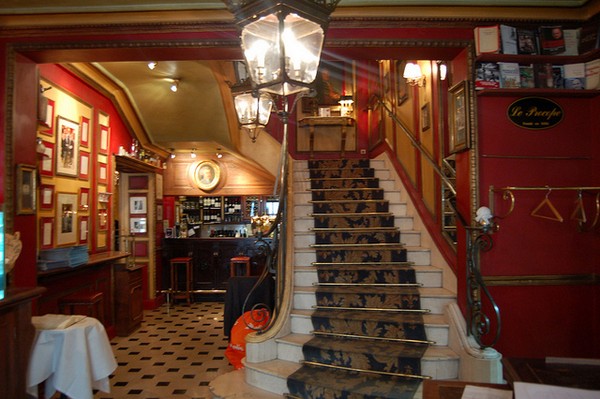 Café Procope is also a restaurant nowadays . So if you happen to be in Paris and feel like eating chicken stewed in wine or duck breast in honey sauce, the address is rue de l’Ancienne Comédie, 6th arrondissement. Bon appétit!
Café Procope is also a restaurant nowadays . So if you happen to be in Paris and feel like eating chicken stewed in wine or duck breast in honey sauce, the address is rue de l’Ancienne Comédie, 6th arrondissement. Bon appétit!
#6. Les Deux Magots, Paris
Intellectuals such as Simone de Beauvoir, Jean-Paul Sartre and Ernest Hemingway used to consider this place as the pefect randezvous venue. Les Deux Magots is also associated with Albert Camus, Pablo Picasso, James Joyce, Bertolt Brecht and Charles Sutherland. 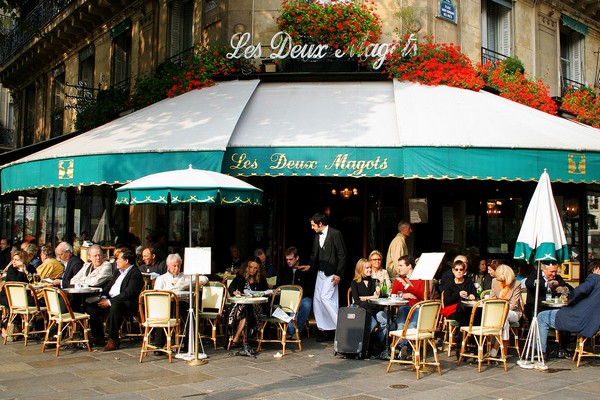
In The Chariot Makers, racing broadcaster Steve Matchett describes Les Deux Magots as: “the first café in the quarter to be blessed by the morning sun. Its clientele pay a healthy premium for drinking there, it’s only fitting they should be the first to catch the warmth of the new day“. Some say the coffee house is living on its past reputation and doesn’t deliver services as professionally as its surrounding restaurants. But if you want to take in its history, having a a snack and reading the newspaper indoors could turn into a psychedelic experience. A cup of coffee in a summer morning isn’t so bad either.
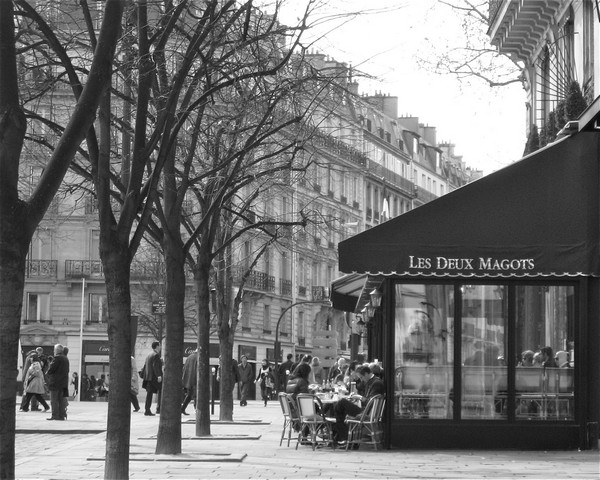
#7. Café de Flore, Paris
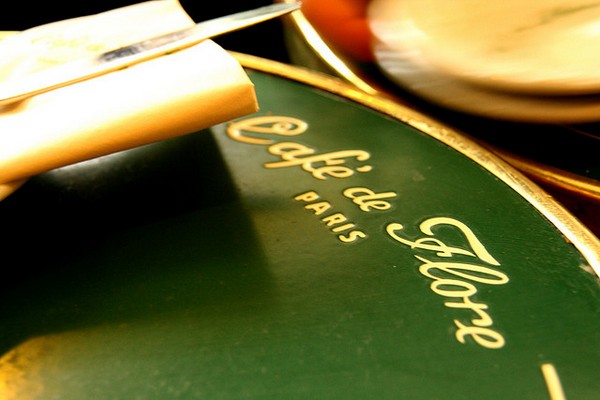
Café de Flore is considered one of the most prestigious and coffee houses in Paris (it was opened in 1890). The menu is not so modest, and the prices either. You can pick whatever you want starting with coffee, tea, alcoholic drinks and ending with omlettes, soups, salads and desserts. A full menu will cost you from 25 to 45 euro. Camus, Sartre and Picasso were loyal customers.
#8. Coffe Baum, Leipzig
Nothing compares to having a coffee in one of Europe’s oldest coffee taverns (the second one after Café Procope). The place is a coffee house, restaurant and museum, which means that after you enjoy your meal and coffee you can admire over 500 coffee-related objects for free. Coffe Baum is often associated with Robert Schumann, Bach, Frantz Liszt, Richard Wagner, Napoleon Bonaparte and Goethe.
There is a beautiful sculpture above the entrance of this coffee house that you might want to observe up close. This sculpture gave the original name of the coffee house: Zum Arabischen Coffe Baum, literally meaning “Arab Coffee Tree”.
#9. Café Louvre, Prague.
Pool and coffee lovers in Prague have a special place where they can enjoy both their passions. First opened in 1902, this place has an interesting history. Being an important cultural meeting point, Café Louvre attracted well-known personalities such as Franz Kafka and Albert Einstein. The café functioned until 1948, when the communists came to power and shut it down, and was reopened in 1992.
#10. Café Novelty, Salamanca
Spain also has important cultural coffee houses that played a significant role in the political and cultural environment. One of them is Café Novelty, also known as Coffeehouse Novelty. Founded in 1905, in Plaza Mayor of Salamanca, this is the oldest café in town. Due to its privileged position it became a central point of meeting for artists such as Ortega y Gasset, Miguel de Unamuno, Mario Vargas Llosa, Gonzalo Torrente Ballester and sculptor Fernando Mayoral.
In memory of Gonzalo Torrente Ballester, an important Spanish writer and professor, Fernando Mayoral decided to place a sculpture that would represent the writer sitting in his favorite corner of Café. The statue is there since 2000 and enjoys a tasty coffee with the other customers.
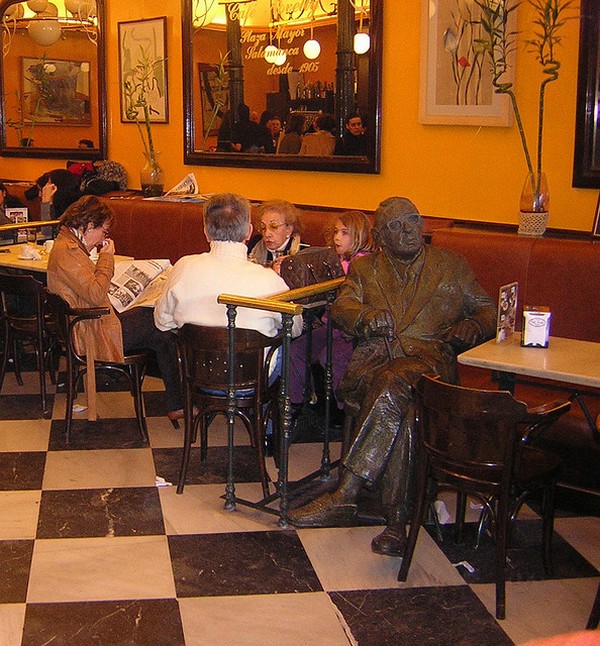
#11. Queen’s Lane Coffee House Oxford, England
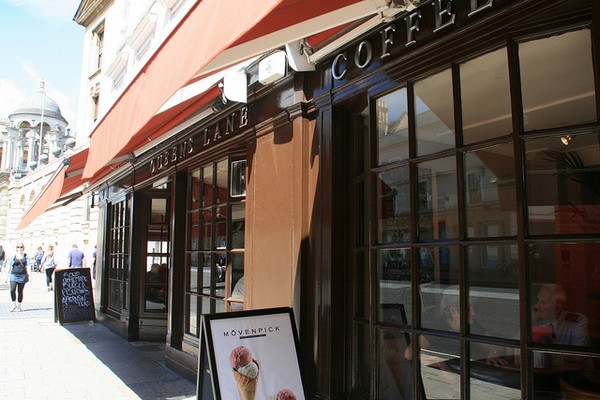
According to Espresso Coffee, Queen`s Lane Coffee House “was named after Queen’s College located to the south and west and is close to St. Edmund Hall, one of the smallest colleges in Oxford. It is one of the oldest coffee houses in England and is the oldest still trading coffee house in Oxford”. Dating from 1654, the place is currently popular with both Oxford University students and tourists.

